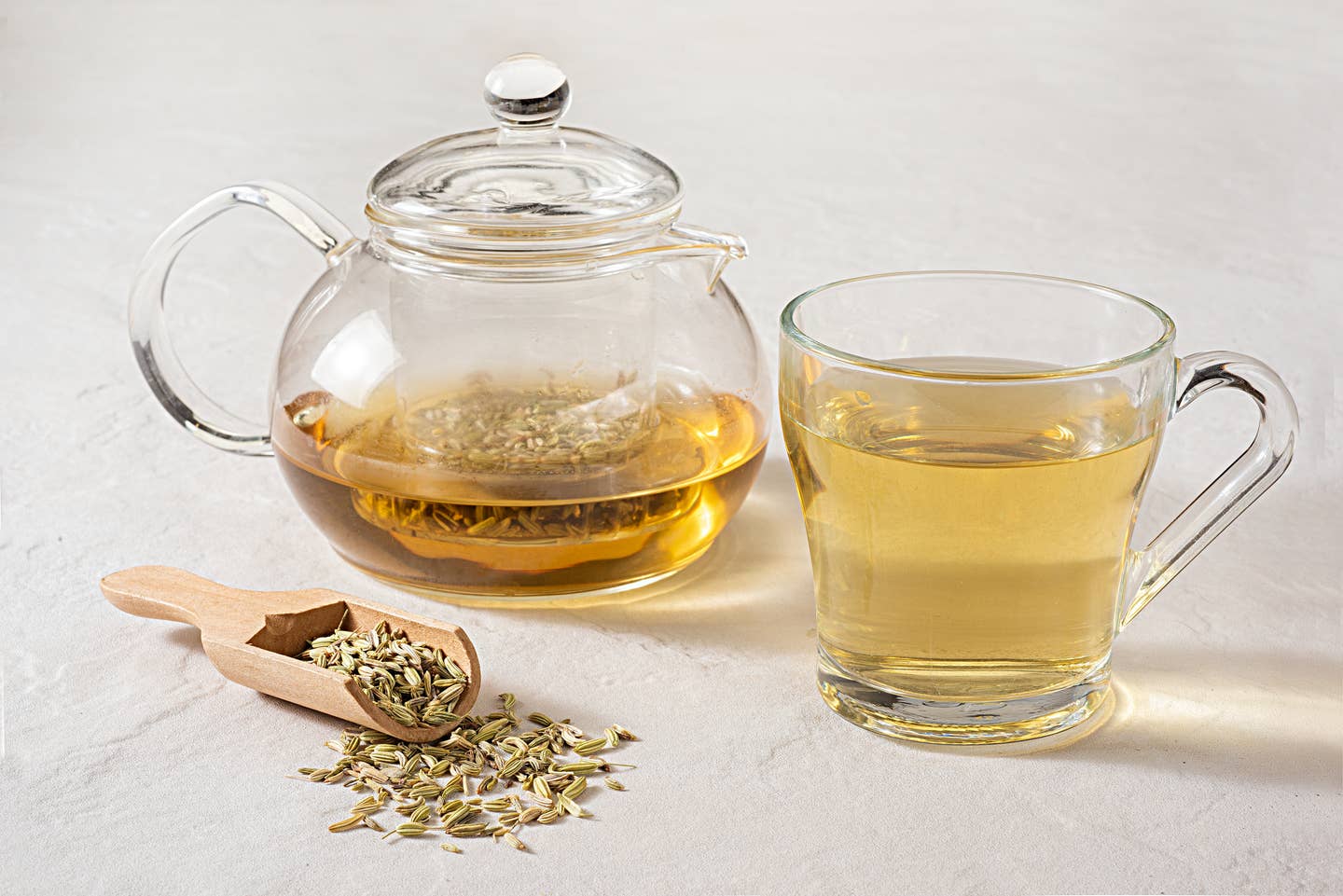
New Study: Plant-Protein Reduces Risk of Frailty In Women Over 60
As the body ages, even the most active among us can get frail, losing bone density and muscle strength, leaving us vulnerable to the risk of bone fracture or imbalance-induced falls. Because frailty is linked with high risk of disease, researchers set out to find a connection between diet and frailty, and found that plant-based protein can protect against frailty, and reduce the indicators of frailty by up to 42 percent.
The study, which set out to evaluate the effect of diet composition, and specifically the role of protein intake on frailty, looked at plant, animal, and dairy protein, in relation to frailty incidence in a large cohort of older women. The findings give new hope for maintaining healthy bones and strong muscles well into later life, and the key appears to be switching to plant-based foods as a source of clean protein now, to live healthier and longer later.
Published in the Journal of Cachexia, Sarcopenia, and Muscle, the study found that replacing animal protein with plant-based protein is associated with a lower risk of frailty, especially among women over the age of 60. The study examined how a plant-based diet in your younger years (and as you age) could help retain muscle and bone strength well into old age. It found that women with a higher intake of plant protein had a lower risk of developing frailty after adjustment for all relevant confounders
How to the Study Gathered Data
The study examined how different diets impact frailty over three decades. To properly analyze the correlation between frailty and protein intake, the researchers looked at dietary data from 85,000 women aged 60 and older who participated in the Nurse’s Health Study – and then looked for those treated fort symptoms of frailty. The review study compared type of protein intake with diet questionnaires over thirty years, from 1980 to 2010.
Frailty is defined as a common syndrome that occurs in older adults, connected to weak muscle strength, slowed walking, poor bone health, unintentional weight loss, and others. Previous research has signified that consumption is directly related to frailty syndrome, but before this study, no conclusion about diet composition had been reached. The researchers specifically observed the intake of proteins, including plants, animals, and dairy.
How the FRAIL Scale Works
The main sources of animal protein include poultry, fish, seafood, eggs, dairy, and processed and unprocessed meats. The plant proteins included cereals, pasta, nuts, bread, beans, and legumes.
They then graded the subjects on the 5-point FRAIL scale specifically:
- Fatigue
- Resistance
- Ambulation
- Illnesses
- Loss of Weight
The five tenants of the scale were measured as:
1. Feeling frequent or chronic fatigue
2. Having low physical strength
3. Reduced aerobic capacity
4. Experiencing five or more chronic conditions
5.Unintentional weight loss of five percent or higher.
To assess frailty, the research team determined that those suffering from frailty syndrome must exhibit three out of five criteria.
The researchers found that women with higher percentages of plant protein consumption showed a reduced risk of frailty.
The study also noted that participants with higher levels of animal protein consumption showed significantly higher risks of frailty.
Plant-Based Protein Lowered Frailty Risk 42 Percent
The study identified more than 13,200 cases of frailty among the participants. Those with the highest plant-protein in their diets had the least frailty, In contrast, those with a higher intake of animal protein intake had a higher risk of frailty.
Within that sample, substituting plant protein for animal protein even 5 percent of the time had an effect of lowering the risk of frailty by up to 42 percent. The intake of total and dairy protein showed no significant association with frailty.
Even 5 Percent More Plant-Based Protein Is Protective
Substituting 5 percent of energy from plant protein intake at the expense of animal, dairy or non-dairy protein was associated with benefits, making it clear that even a modest shift from animal or dairy to plant-based proteins such as legumes, whole grains, nuts, seeds and soy products can help reduce the risk of frailty.
The same reduction occurred when the researchers examined the relationship between different animal proteins. The study found that replacing dairy protein with non-dairy animal protein was linked with a 14 percent lower risk of frailty.
These findings indicate the higher risk factors with non-dairy animal protein including meat and eggs. Overall, the study determined that plant protein is beneficial to promoting body and immunity strength well into older age.
Staying Healthy Longer With Plant-Based Diet
Besides reducing the risk of frailty, a plant-based diet can offer significant health benefits that will last well into old age. One recent study found that a mostly plant-based diet can prolong life expectancy by 10 years – and even more!
The researchers defined two diets good for longevity in the study, noting, "An optimal diet had substantially higher intake than a typical diet of whole grains, legumes, fish, fruits, vegetables, and included a handful of nuts while reducing red and processed meats, sugar-sweetened beverages, and refined grains. A feasibility approach diet was a midpoint between an optimal and a typical Western diet." Both diets emphasized that partial substitutions still helped significantly reduce death risk.
The younger you start eating plant-based, the better. Another study found that a plant-centered diet from 18 to 30 years old could help lower the risk of heart disease decades later. Without having to go completely vegan, you could significantly lower heart disease risk factors by cutting out unhealthy animal products in your younger years.
Bottom Line: To Reduce Frailty After 60, Eat More Plant-Based Proteins
It is never too late to start eating healthier to improve your health. For strong healthy bones and muscles, focus on a plant-based diet and avoid meat, dairy and animal protein. Even swapping some of your animal protein for plant-based foods can provide benefits as you age and help prevent diseases like heart disease and cancer.
For more on how to stay healthy, check out The Beet’s seven best plant-based foods for bone health.
20 Athletes Who Went Vegan to Get Stronger
1. Novak Djokovic: Number one tennis champion in the world
The number one tennis player in the world, Novak Djokovic, went plant-based more than twelve years ago to enhance his athletic performance and win more matches. In recent interviews, he has credited going vegan with helping him rise from third place in the world to first in the world because it helped clear his allergies. Before changing his diet, Djokovic had searched for cures to the breathing issues that cost him matches and focus which caused him to struggled during his most intense matches. The allergies used to make him feel like he couldn’t breathe and would be forced to retire from competitive matches as he did in Australia. "Eating meat was hard on my digestion and that took a lot of essential energy that I need for my focus, for recovery, for the next training session, and for the next match," he said. Djokovic emphasized he does not eat foods that require a lot of digestion, especially in the morning, when he needs all of his energy for training. Instead, he starts the day with hot water and lemon, then celery juice, and some superfood supplements.
2. Tia Blanco: Professional Surfer and Beyond Meat Ambassador Read More: 20 Who Athletes Swear by a Plant-Based Diet to Boost Performance
Tia Blanco won gold at the International Surfing Association Open in 2015 and credits her success to her vegan diet. Blanco reports that a vegan diet helps her stay strong and she enjoys eating different forms of vegan protein like nuts, seeds, beans, and legumes. The professional surfer was influenced by her mother, who is a vegetarian and grew up in a veggie-forward household, Blanco has never eaten meat in her life, which made the plant-based switch much easier. And speaking of making things easier, Blanco has an Instagram cooking page called @tiasvegankitchen where she shares her favorite simple vegan recipes so all of her fans can eat like their favorite professional vegan athlete. In addition to her home-cooked meals, Blanco recently became an ambassador for vegan company Beyond Meat and now she posts Instagram stories and highlights of her favorite meatless meat recipes.
3. Steph Davis: World Leading Professional Rock Climber
Steph Davis has been vegan for 18 years now and says, "there’s nothing in my life that hasn’t become better as a result, from climbing and athletics to mental and spiritual well being." Davis has competed on some of the most challenging verticle routes on the planet –like Concepcion (5.13), which is known to be one of the hardest pure climbs anywhere. Davis holds the third overall ascent and is the first female to ever make the ascent of the route. Davis described it as her "most technically demanding climb ever." Davis explained why she went vegan eight years ago when she partnered with PETA. "What can we do to start making changes in a positive way? And if it just so happens that changing our lifestyle leads to environmental benefits, health benefits, economic benefits, and positive social change, then all the better. One thing I’ve learned is you don’t have to do or be anything you don’t want to be, and you can change anything in your life just by starting to do it. It’s you who chooses who and what you are, by the things you think and the things you do." She goes on to add, "no one says you have to become a “perfect” vegan overnight. But why not start making small changes and see how it feels? I believe it’s the small choices people make that have the biggest power to change, and nothing is more simple yet also more far-reaching than changing how and what you choose to eat. We’re all here for a short time, in the end, and living a well-intentioned and compassionate life seems like what ultimately matters the most, the only real goal that I aspire to."
4. Venus Williams: Tennis Great
Tennis champion Venus Williams swears that making the switch to veganism was one of the factors that helped to improve her performance and get over an auto-immune disease. The tennis star went vegan back in 2011 when she was diagnosed with Sjögren's syndrome, a debilitating autoimmune disease with a range of symptoms from joint pain to swelling, numbness, burning eyes, digestive problems, and fatigue. She chose to eat plant-based to recover to her formerly healthy self, and it worked so she stuck to it. The seven-time Grand Slam singles champion recovers faster on a plant-based diet now, compared to how she felt back when she ate animal protein. When you have an auto-immune disease you often feel extreme fatigue and random body aches and for Venus, a plant-based diet provides energy and helps her reduce inflammation. The Beet reported on Willaim's diet and what she normally eats in a day to stay healthy, fit, and win more matches. Talking about her favorite dinner meal, Williams adds, “sometimes a girl just needs a donut!"
5. Mike Tyson: The First Heavyweight Boxer to Hold the WBA, WBC, and IBF Titles
Mike Tyson recently said he is "in the best shape ever" thanks to his vegan diet. The boxing legend then announced he's getting back into the rings after 15 years, to fight against Roy Jones, Jr. in California later this fall. Tyson went vegan ten years ago after dealing with health complications and in the wake of having cleaned up his life: “I was so congested from all the drugs and bad cocaine, I could hardly breathe." Tyson said, “I had high blood pressure, was almost dying, and had arthritis." Now, the 53-year-old powerhouse is sober, healthy, and fit. "Turning vegan helped me eliminate all those problems in my life,” and "I'm in the best shape ever." His new trainer agrees: Watching Iron Mike's speed during recent training sessions, observed: "He has the same power as a guy who is 21, 22-years old."
6. Chris Paul: The NBA's Newest Vegan Who Was Influenced by The Game Changers
Oklahoma City's point guard Chris Paul decided to ditch meat and dairy and was asked join on as a co-executive producer for the popular documentary, The Game Changers. For breakfast, Paul enjoys oatmeal with plant-based milk and nut butter. For lunch, he fuels up with pasta or brown rice with Beyond Meat sausage, grilled vegetables, and a curry sauce. His chef told USA Today, "The main thing is, we try to keep it as light and clean as possible for his normal routine, with organic ingredients. Anything that can minimize body inflammation. Chris is always worrying about what he can and can't eat." So far it appears he's getting it right. In an exclusive interview with The Beet's Awesome Vegans columnist Elysabeth Alfano, Paul said eating a plant-based diet helps him keep up with players half his age.
7. Colin Kaepernick: Former (future?) NFL Player and Social Activist
In 2016, Kaepernick made the switch to veganism with his longtime girlfriend to recover from a series of injuries that had him down for the count. The Beet recently reported on how this dietary switch has allowed Kaepernick to stay strong and healthy. Now, he's in the gym building muscle and looks fitter than ever. But will he be picked up? The professional football player claims that a vegan diet makes him feel "always ready" to perform his best on the field.
8. Cam Newton: New England Patriots' Newest Quarterback is Vegan
Cam Newton just replaced Tom Brady, who also follows a mostly plant-based diet, as the New England Patriot's QB, after having made the plant-based switch back in March 2019. The NFL Star first decided to ditch meat and dairy to recover quicker from injuries when he learned that a plant-based diet is proven to help reduce inflammation. "I've seen such a remarkable change in the way my body responds to the food that I eat," Newton told PETA for his recent partnership for a new campaign called, "Built Like a Vegan," proving that you don't need to eat meat to be strong. Newton enjoys a meat-free burger on a pretzel bun, heavy on pickles and sauce. He adds: "People often ask, 'How do you get your protein?' I just say, 'I get it in the same way you do, but it's fresher and cleaner.' " Newton shares how to do it: "My advice to a person who wants to become vegan is to eat on schedule. If you can eat on a schedule, you won't miss [a meal or crave meat] or think anything different, and you'll be alright."
9. Elijah Hall: American Sprinter Training for The 2021 Tokyo Olympics
Elijah Hall says about his vegan diet: "Going vegan was the best decision" he has ever made. Hall holds records in the indoor 200 meters and was training for the Tokyo this summer when it got postponed by a year due to the pandemic. Hall said "the effects that it’s having on my body are amazing. Becoming a plant-based athlete has opened many doors to my health and my training." We predict he'll only get faster in the next 11 months and break records, come home with golf and be the world champion in 12 months.
10. Morgan Mitchell: Omplyian Sprinter Who Won her First Title at 2014 Australian National Championships
Five-years ago, Morgan Mitchell went vegan and it made her faster, leaner and happier. Last year she was featured in the plant-based athletes documentary The Game Changers and said, “Being vegan has helped me immensely. I don’t feel sluggish like I did when I was eating meat, and my recovery from training really took off. It felt like an overall cleanse for my body, and I started seeing greater results on the track.” Now Michelle is committed for the planet as well. “Ultimately helping the environment and not contributing to animal cruelty was a big thing for me, too. That was my initial reason for going vegan, and the rest of the benefits were just added bonuses.” Mitchell describes what she eats in a day for enhanced performance and more energy to win sprints. “I like to make sure I have three different types of protein in there. I use tofu, beans, and mushrooms, along with spinach, vegan cheese, and hash browns,” she says. “I also love to add Beyond Meat for more flavor, which is a great source of plant protein as well. That usually keeps me full for the better part of the day," she told Well + Good.
11. Lewis Hamilton: Formula One Driver Who Credits His Vegan Diet For Allowing Him to Be Victorious
"We were taught that eating animal products was good for us but we've been lied to for hundreds of years," said Lewis Hamilton. The Beet reported on Hamiltion's vegan diet quoting The New York Times that he credits his new plant-based diet with making the difference in his career. Hamilton gave up processed food and animal products for vegetables, fruit, nuts, grains, because of his strong compassion for animals, for the benefit of the environment, and his own health. Hamilton isn't the only vegan in his family. His dog Rocco is fully vegan and Hamilton says he's "super happy" on Rocco's very own IG post. Earlier this year, Hamilton gave up his private jet because he said it's a big pollutant and aims to live a sustainable lifestyle. Back in February, he started a line of sustainable clothing with Tommy Hilfiger at London Fashion Week.
12. Patrik Baboumian: Arguably The Strongest Man in The World
Featured in The Game Changers for his elite strength and his superhuman ability to lift a car, Patrik Baboumiam is one of the strongest men in the world and also happens to be vegan. Baboumian lifted 358 pounds in the 2009 German log lift nationals. Back in 2014, Baboumiam partnered with PETA in his campaign "Want to be Stronger" describing powering yourself with plants and how you can build muscle without eating meat. One of his 2019 PETA campaigns showed him posing with crossed arms and leaves in his mouths with the text: "The world's strongest animals are plant-eaters: Gorillas, buffaloes, elephants and me." Bahoumiam's diet consists of a dairy-free shake for breakfast with 8 grams of protein and 0 carbohydrates. For lunch, he enjoys vegan sausage, falafel, low-fat oven fires, peppers, and more grilled veggies. He normally eats 250 grams of carbs and 90 grams of protein just for lunch. Dinner includes vegetables cooked potatoes, and tofu. If you want to eat like Boubanian, he reports his food diary on his blog BarBend.
13. Arnold Schwarzenegger: Former Proessional BodyBuilder, Producer, The Game Changers, and former Governor of California
Here's a guy who has worn many hats: Bodybuilder, Terminator, California Governor, and now vegan and advocate for the plant-based lifestyle. Arnold Schwarzenegger ditched meat and dairy and has proven that you don't need to eat animal products to be strong, healthy and reverse symptoms of heart disease. Now 73, he had a pulmonary valve replacement 1997 due to a congenital defect and underwent emergency open-heart surgery in 2018 to replace the valve again. He then changed his eating and fitness habits and now extolls the virtues of plant-based eating for the environment as well as health reasons. He is a producer of The Game Changers (a movie with many masters) and an advocate for going vegan for health, the environment and the sake of animals (he posts on IG with his pet donkey and miniature pony, both household dwelling animals). Schwarzenegger said last year: "Right now, seven million people are dying every year. That is alarming and everyone in the government has the responsibility to protect the people.... 28 percent of the greenhouse gasses come from eating meat and from raising cattle, so we can do a much better job."
14. Scott Jurek: Named One of The Greatest Ultra-Marathoner's Of All Time Read More: 20 Who Athletes Swear by a Plant-Based Diet to Boost Performance
Jurek is an extreme ultra-marathon runner who has won the Hardrock Hundred, the Badwater Ultramarathon, the Spartathlon, and the Western States 100 Mile Endurance Run (you get the idea). Jurek has been vegan for almost two decades, after easing into it by cutting out meat in college, he slowly stopping seafood and finally giving up all animal products once he realized that eating this way made him feel healthier and happier. To run such an extreme amount of miles, you need to fuel your body with plant-based foods that will give you enough energy and carbohydrates to go the distance. The goal is to eat 5,000-6,000 calories of plant-based foods daily. Jurek outlined his plant-based diet in an interview with Bon Appetite. Instead of waking up to a hot cup of coffee to boost energy, he prefers to drink tea and a green smoothie with spirulina or chlorella and a host of other ingredients. He adds bananas, frozen pineapple slices, or mangoes, brown rice and pea protein, (for protein) to rebuild what's lost in training. This is not just any smoothie.
15. Alex Morgan: USA Soccer Star, Plays for the Orlando Pride of the NWSL
Soccer star, Alex Morgan is one of the beloved members of the USA National Team that won the World Cup and has shown that the female players deserve to get equal pay as their male counterparts by the US Soccer Federation. She is also an animal rights advocate and longtime vegan, having given up meat when she decided that "it didn't feel fair to have a dog, and yet eat meat all the time,” referring to her adorable pup Blue. Morgan aims to eat 90 grams of plant-based protein daily to stay fit and lean, especially for her workouts and on the field. Morgan admitted that breakfast was difficult because "a lot of the things I love like pancakes and French toast had dairy and eggs." But now she enjoys oatmeal with nut butter and berries, smoothies, rice, quinoa, veggies, black beans, protein shakes, Mediterranean food, Impossible burgers, Mexican beans, and sauteed veggie burritos, she told USA Today.
16. Paul Rabil: Pro Lacrosse Player: A Vegan Diet Helped Alleviate His Sciatica
Paul Rabil who played for the Boston Cannons and the New York Lizards of Major League Lacrosse, ditched meat and dairy after his 2019 season ended and revealed he's now "officially" vegan on YouTube. "At first [switching to a plant-based diet] was to help solve some pain and trauma that I was going through. Over the last two years, I've had two herniated discs.... and that has led to a ton of shooting pain down my legs, its called sciatica," Rabil explains the purpose of his diet switch. He adds: "I've tried to a lot of things; I've had a number of cortisone shots; I've done physical therapy for two years. And I reached a place where I was thinking 'okay maybe I can solve this with nutrition because a lot of our pain stems from inflammation. Within a few weeks, I started noticing a lot of alleviation so I started focusing and doubling down more on veganism"
17. Hannah Teter: 2006 Olympic Snowboard Gold Medalist
Hannah Teter won Olympic gold and silver in the halfpipe and is also a seven-time XGames medalist. She changed her diet after watching the documentary, Earthlings when she discovered how "horrible" factory farming is. After a strict vegetarian diet, Teter liked the way she performed and believes that her diet helped her win gold at the 2006 games. She now considers herself "plant-based" and in an interview with the Huffington Post, Teter said, "I feel stronger than I’ve ever been, mentally, physically, and emotionally. My plant-based diet has opened up more doors to being an athlete. It’s a whole other level that I’m elevating to. I stopped eating animals about a year ago, and it’s a new life. I feel like a new person, a new athlete."
18. Nick Kyrgios: Professional Tennis Champion Ranked 40 in The World
Djokovic is not the only tour player to go plant-based. Nick Kyrgios shared that he does not eat meat anymore because of his strong compassion for animals. During the time of the Australian wildfires, the Aussie native explained: "I've been passionate about animal welfare for some time now. I don't eat meat or dairy anymore. That’s not for my health, I just don’t believe in eating animals." "I tried a vegan diet a couple of years ago but with all the travel I do, it was hard to stick to it. Since then I've managed to make it work, and I've been vegetarian for quite a while. "Seeing the footage of these animals suffering from the fires only reinforces why I've chosen this diet. When I see these terrible photos, I can’t comprehend eating meat."
19. Matt Frazier: Ultra-Marathoner Credits Vegan Diet For Breaking Personal Records
Matt Frazier has run 27 ultra-marathons in his career so far and continues to write about the endurance strength of being a vegan athlete in his personal blog, which he started 11 years ago: No Meat Athlete. The Beet recently interviewed Frazier about his vegan journey and how to be a successful athlete on a plant-based diet. When asked about the first time he ditched meat Frazier replied, "I had already cut 90 minutes off my first marathon time. I was still 10 minutes away from the Boston Marathon qualifying time. I had plateaued, and I was not sure how I was going to find 10 minutes. [Plant-based eating] was what I was missing. That’s what it took. The other big noticeable difference to me [after going vegan] was I stopped getting injured. Injuries had always been a big part of my running journey. When I became vegan, it was around the time I ran three 50-milers and a 100-miler. I didn’t have any injuries. If it’s done right, [plant-based diets] can really help you recover faster."
20. Michaela Copenhaver: Professional Rower, World Record Holder, 10,000m Indoor
Rowing is grueling. It's known as the toughest endurance sport in the world. The world record-breaking female rower, Michaela Copenhaver went vegan in 2012 for ethical reasons, she told Great Vegan Athletes. “Initially, I just wanted to eat more vegetables. Those things are super good for you, and they're delicious. Being vegetarian and vegan made me more conscious of how many servings I was getting a day (or not).” When she switched from vegetarian to vegan it was almost accidental: “I was traveling for a regatta in the fall of 2012. I had been vegetarian for 1.5 years already but relied pretty heavily on dairy and eggs. While I was traveling, I was bouncing from couch to couch and had no way to safely store dairy or eggs—so I decided to try a week without them. I felt great, and it wasn’t nearly as scary as I thought. I’ve been vegan ever since.” Now it's a value system: “Once I stopped eating and using animals, I felt I could finally address a question that had been bothering me for a long time—what right do we have to exploit other creatures? Now, I understand that we have no right, and my motivations are primarily ethical.”
More From The Beet






